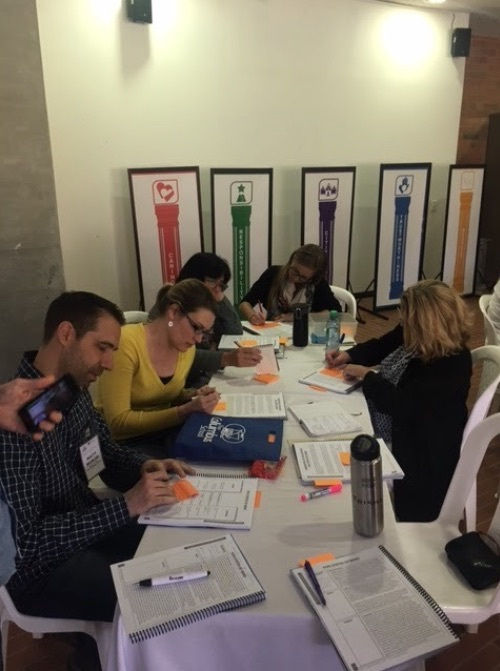Cognitive Coaching Institute
- Adam Slaton
- Mar 7, 2017
- 2 min read
Cognitive Coaching Institute Columbus School, Medellin By: Trisha Nikrandt, Director of Learning
With the support of AASSA, The Columbus School hosted 20 staff members from AASSA schools and 20 from The Columbus School for the first session of Cognitive Coaching. Cognitive Coaching in a model that supports individuals and organizations in becoming self-directed, and in turn, become self-managing, self-monitoring and self-modifying (Thinking Collaborative website).
The participants learned how to:
Develop trust and rapport
Develop an identity as a mediator of thinking
Utilize conversation structures for planning, reflecting and problem solving
Develop teachers’ autonomy and sense of community
Develop higher levels of efficacy, consciousness, craftsmanship, flexibility and interdependence
Apply four support functions: coaching, evaluating, consulting, collaborating
Utilize the coaching tools of pausing, paraphrasing and posing questions
Distinguish among the five forms of feedback
Use data to mediate thinking
These skills transcend coaching and can be applied to working with students, adults, peers and family members. The participants were actively engaged throughout the 4-day workshop through role play and simulations of difficult conversations. Here are quotes from some of the participants:
“I have done planning conversations with students around writing. I found that it was effective because our students do not have access to higher level vocabulary. So, by paraphrasing and labeling their thinking students were able to access a higher level of writing structures.” Ben Light, 5th grade teacher and team leader
“I am more aware of how to adapt what I am already doing with video coaching to provide teachers with more time to reflect by paraphrasing, pausing and posing questions that mediate thinking.” Jordi Tur, secondary instructional coach
“I am now to apply a strategy for mediating thinking of my colleagues when they are planning or reflecting on a meeting, project or lesson. I have found that I do not have to give solutions but rather help them find strategies that will work for them.”

Doreen Merola modeling rapport and body language in a coaching conversation

Participants learning how the five states of mind (consciousness, craftsmanship, efficacy, flexibility and interdependence) can assist you meditating thinking.

40 participants from 16 different schools learning how they are similar and different from each other.



